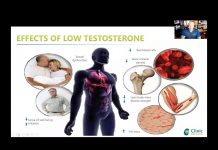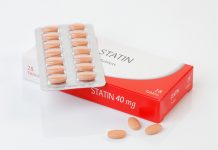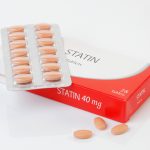Low serum free triiodothyronine levels are associated with the presence and severity of coronary artery disease in the euthyroid patients: an observational study.
Ertaş F, et al. Anadolu Kardiyol Derg. 2012.
Abstract
OBJECTIVE: The aim of this study is to investigate the relationship between serum thyroid hormone levels that are within the normal range and the presence and severity of coronary artery disease (CAD) in patients referred for coronary angiography.
METHODS: In this observational study, we enrolled 119 consecutive patients (77 men, mean age 60.7±13.8 years) who underwent coronary angiography. Blood samples were tested for thyroid stimulating hormone (TSH), free triiodothyronine (FT3) and free thyroxine (FT4) concentrations. Additionally, risk factors, clinical characteristics and angiographic results were obtained. The patients were separated into two groups according to the Gensini score as those with mild or severe atherosclerosis. Statistical analysis was performed using the Chi-square, Mann-Whitney U, correlation and logistic regression tests, and ROC analysis.
RESULTS: FT3 levels were significantly lower in subjects with CAD (4.0±0.7 vs. 4.6±0.6 pmol/L; p<0.001). Moreover, lower FT3 levels were found in patients with severe atherosclerosis (3.9±0.7 vs. 4.5±0.6 pmol/L; p<0.001). Logistic regression analysis demonstrated that the lower FT3 levels were associated with the presence (OR =0.266, 95% CI: 0.097-0.731, p=0.01) and severity (OR=0.238, 95% CI:0.083-0.685, p=0.008) of CAD. In the ROC analysis, a level of FT3 ≤4.2 pmol/L was found to predict the presence of CAD with 69% sensitivity and 71% specificity (AUC:0.744, 95% CI:0.653-0.834, p<0.001); and the severity of CAD with 75% sensitivity and 67% specificity (AUC:0.733, 95% CI:0.642-0.824, p<0.001).
CONCLUSIONS: FT3 levels within the normal range were inversely correlated with the presence and severity of CAD. Moreover, lower FT3 concentrations were correlated with the Gensini score and independently predicted the presence and severity of CAD. Thus, the FT3 levels may be used as the indicator of increased risk for CAD.
Check your free T3: https://www.discountedlabs.com/free-triiodothyronine-t3/
Recent Posts
Erectile Dysfunction Causes and Treatments
Facts, Causes, and Management Options of Erectile Dysfunction
Statin Drugs Lower Testosterone Production
Statin Drugs Markedly Inhibit Testosterone Production by Rat Leydig Cells in Vitro: Implications for Men
Reproductive Toxicology
Available online 22 January 2014
Highlights
•Statins cause significant reductions in...
Dr. Saya Speaks About HRT
This is a short video in which Dr. Justin Saya from DefyMedical.com speaks about his approach for hormone replacement therapy in women.
IGF-1 Roles and Benefits
By David Skutt
IGF-1, What is it?
IGF-1 is a hormone produced in our body that is structurally very similar to insulin. It has an important...
Anabolic/Androgenic Hormone Prescribing Indications
Nandrolone Decanoate
Presentation: Injectable (IM-Depot) 100mg/mL; 200mg/mL X 10mL
Common dose range: 25mg qw- 400mg qw (or q month)
Active-life: 7-10 days post injection
Treatment and Indication:
Nandrolone was...

















